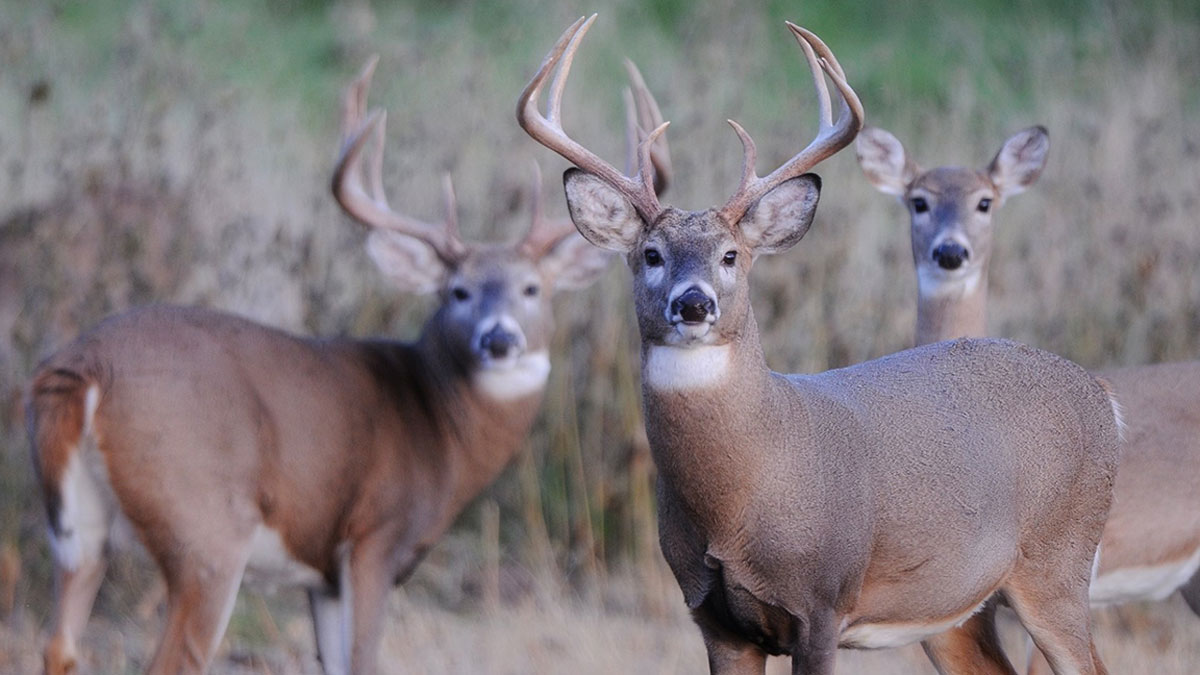The South Dakota Game, Fish and Parks (GFP) Commission proposed changes to the transportation and disposal of deer and elk carcasses from other states and hunting units within South Dakota’s known endemic areas where Chronic Wasting Disease (CWD) had been confirmed. These newly proposed regulations, if enacted, would not go into effect until the 2020 hunting seasons.
The Commission made the following proposed rule changes to help reduce the spread of CWD.
Interstate Carcass Transportation
- Importation of whole cervid carcasses and high-risk cervid carcass parts into South Dakota is restricted from other states, regardless of CWD status of the exporting state.
- Only the following portions of hunter-harvested cervid carcasses may be brought into South Dakota:
- cut and wrapped meat; quarters or other portions of meat with no part of the spinal column or head attached; antlers, hides or teeth; finished taxidermy mounts; or antlers attached to skull caps that are cleaned of all brain tissue.
Whole cervid carcasses only traveling through South Dakota are exempt from this regulation.
Intrastate Carcass Transportation
- Whole cervid carcasses and high-risk cervid carcass parts shall not leave a known CWD endemic area within South Dakota.
- Only the following portions of cervid carcasses may leave a known CWD endemic area within South Dakota:
- cut and wrapped meat; quarters or other portions of meat with no part of the spinal column or head attached; antlers, hides or teeth; finished taxidermy mounts; or antlers attached to skull caps that are cleaned of all brain tissue.
Carcass Disposal
- A hunter shall dispose of all remaining cervid carcass parts taken from another state, regardless of CWD status of the exporting state, or a known South Dakota CWD endemic area with a waste management provider or permitted landfill when non-commercial meat processing and non-commercial taxidermy has concluded.
- Those cervid carcasses taken from a known South Dakota CWD endemic area that test negative for CWD from a verified test sponsored by the Department would be exempt from this disposal regulation.
- Any recipient of such gift of wildlife as described above shall follow this cervid carcass disposal requirement.
- A wildlife processing facility shall dispose of all remaining cervid carcass parts taken from another state, or a known South Dakota CWD endemic area with a waste management provider or permitted landfill.
- Game processors licensed by U.S. Department of Agriculture or S.D. Animal Industry Board shall dispose of carcasses as required by the conditions associated with such license.
- A taxidermist shall dispose of all remaining cervid carcass parts taken from another state, regardless of CWD status of the exporting state, or a known South Dakota CWD endemic area with a waste management provider or permitted landfill.
To comment in person, the public hearing will be held Sept. 5 at 2 p.m. MDT at the Spearfish Holiday Inn. Individuals can submit comments online at gfp.sd.gov/forms/positions/ or mail them to 523 E. Capitol Ave., Pierre, SD 57501. To be included in the public record and to be considered by the Commission, comments must include a full name and city of residence and meet the submission deadline of 72 hours before the public hearing (not including the day of the public hearing) per HB 1006
(Photo source: South Dakota Game, Fish and Parks)
The Arizona Game and Fish Department’s Operation Game Thief received nearly 1,100 reports which led to 76 citations for wildlife violations in 2017.
“Poachers are thieves. They do not represent the hunting community, and the majority of the reports come from hunters and anglers who are out in the field and witness suspicious activity,” said Scott Fischer, program manager for Operation Game Thief. “The hunting community does a great job of policing itself. If you see something, say something.
In 2017, wildlife violators were assessed $74,500 in civil fines, and that money goes directly into the department’s Wildlife Theft Prevention Fund, which pays for the rewards as well as promotion of Operation Game Thief. In addition, 51 individuals had their hunting and/or fishing license revoked by the Arizona Game and Fish Commission as part of their penalty, one of which was a lifetime revocation. The department receives no general fund money from the state of Arizona.
It’s also important to note that mistakes and accidents happen, and the department will work with hunters and anglers who immediately self-report their actions to the Operation Game Thief hotline.
“Mistakes happen in any endeavor, and the amazing thing about hunters is they frequently report themselves,” Fischer said. “Hunters respect wildlife and because of that respect they’re willing to risk penalties in order to ensure meat from the wildlife they take is not wasted.”
(Photo source: Arizona Game and Fish Department)
